Wondering whether coconut water and coconut milk are the same? Which is better, coconut milk or coconut water? This post will help you understand the differences between coconut water and coconut milk, and which one to use to meet your needs!
Did you know that coconut is known as the tree of life? And do you know why? Because it produces so many food and beverage products, like coconut water, oil, milk, and cream. Crazy, right?
With the rising popularity of coconuts, they are clearly having a heyday (and I'm all for it!). But since there are so many products in the market now such as coconut milk, coconut water, coconut cream, and coconut oil, shopping can definitely get confusing.
Trust me, I've been there before.
But if you are more interested in coconut oil you can take a look at my post Coconut Oil Vs Avocado Oil: Which Is Better?.
So I'm here to break down the two most common products you will find in your local grocery store and in recipes: coconut milk and coconut water.
Let's look at the nutrition and all there is to know about these two, shall we?
What Is Coconut Milk?
Coconut milk isn't directly harvested from the coconut. It is made of processed coconut meat, which is filtered, liquefied, and diluted with water. The consistency highly depends on the amount of water used to make the milk.
In a nutshell, it is an emulsion of two liquids: coconut cream and coconut water. If you've ever bought a can of coconut milk for your Thai or Vindaloo curries, you'll notice that the cream has risen to the top and the water at the bottom.
It is usually high in calories and a large portion of these calories in fact could be derived from fat (again, don't be afraid of the word!).
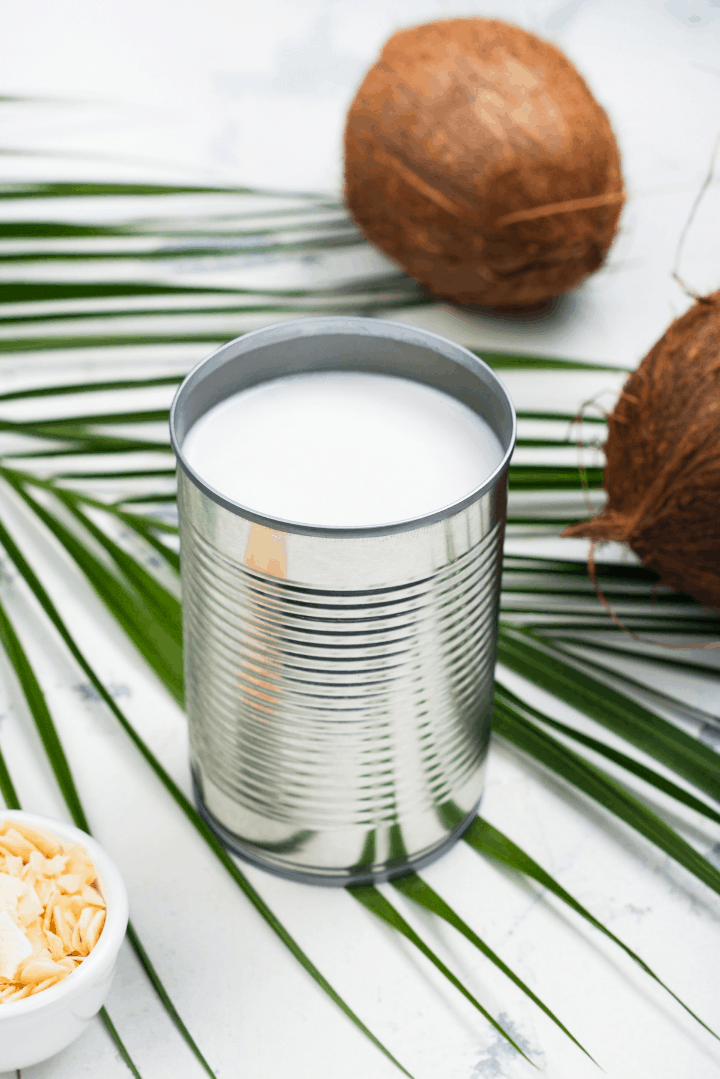
Types Of Coconut Milk
You must have noticed this already but when buying coconut milk, you'll be faced with choices including:
- Canned coconut milk
- Carton/Refrigerated coconut milk
- Powdered coconut milk
Although all of them are technically coconut milk, they are completely different in terms of how they are processed and their nutritional content.
Here's a comparison of the three.
Canned Coconut Milk
- Some canned full-fat coconut milk brands only contain coconut and water and don't have any added processed sugar or preservatives. Compared to its counterparts, it tastes more authentic and natural. It also contains guar gum, which is a naturally sourced additive from guar beans.
- Culinary uses: Since canned coconut milk is quite thick, it is often used for cooking. In general, when you see a recipe that calls for the ingredient "coconut milk," they mean a canned one.
Carton/Refrigerated Coconut Milk
- If you're trying to avoid BPA, boxes or cartons would be the way to go! Compared to canned coconut milk it has way more preservatives such as processed sugar and synthetic vitamins. Its flavor isn't as strong as canned coconut milk because of its higher water content and other preservatives. This is much lower in fat content and is much less creamy. This is more of a substitute for regular milk.
- Culinary uses: Just like canned coconut milk it is also used for cooking, from curried meals to baking, and you can easily swap one for the other depending on your preference. This is better used in smoothies, cereals, and as a coffee creamer.
Powdered Coconut Milk
- Coconut milk also comes in the form of a powdered version. Powdered coconut milk is made from dried coconut meat and is usually mixed with milk or casein and other preservatives. As with anything made of powder, it can be mixed with water which means you have full control of its consistency. Whether you want it watered down or thick, it all depends on the amount of water you add.
- Culinary uses: Since powdered coconut milk can be reconstituted in water it's an easy alternative to both the boxed and canned versions. You can also use it to sprinkle on your baked goods or as a source of fat for your smoothies.
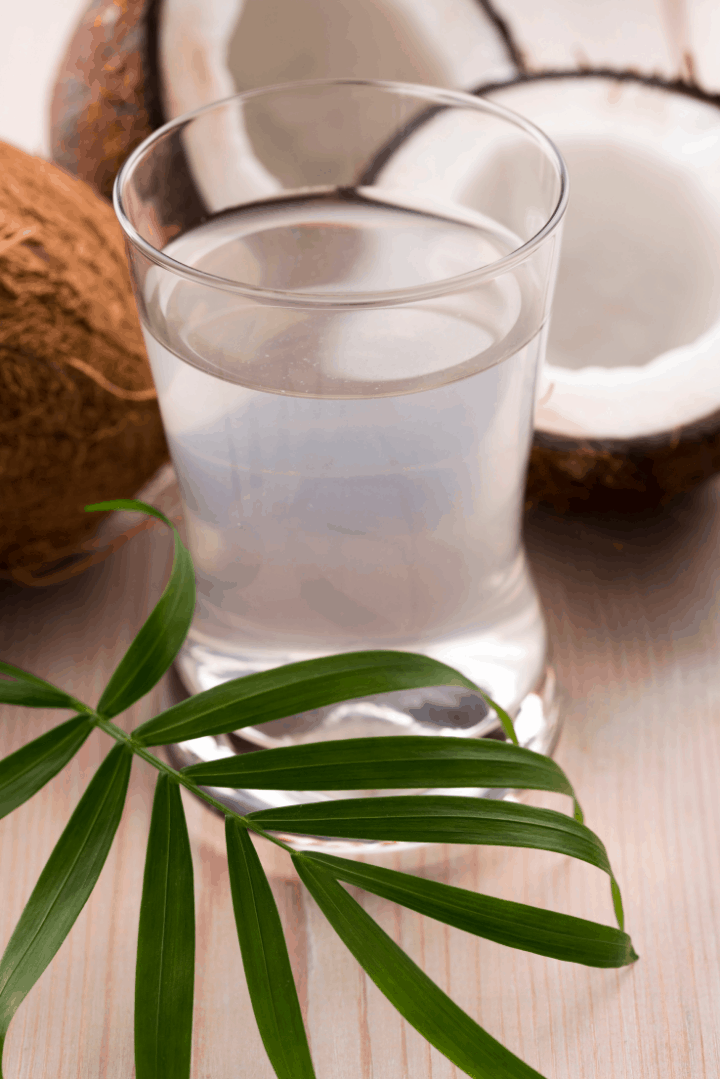
PROS AND CONS OF COCONUT MILK
COCONUT MILK
Pros
- Promotes weight loss
- Contains antioxidants
- Prevents heart disease
- Strengthens the immune system
- Reduction of joint pain and inflammation
Cons
- High saturated-fat content
- It may cause allergies
- It can also lead to high cholesterol
- Contains Guar Gum which causes digestive problems
- May cause fructose malabsorption
What Is Coconut Water?

Which Is Healthier: Coconut Water Vs Coconut Milk?
Coconut milk and coconut water have different uses so they can't really be compared apples to apples. But if you take a look at the nutritional value there is a stark difference between them especially in terms of calorie content and grams of fat. Although coconut milk is high in saturated fats, the good news is that these fats are known as medium-chain triglycerides, and are thought to aid weight loss.
To give you a better picture of what I'm talking about, let's compare 1 cup (240 mL) of coconut water and coconut milk:
Coconut Water Coconut Milk
Calories 46 552
Protein 2g 5.5g
Fat 0.5g 57g
Carbohydrates 9g 13g
Sugar 6g 8g
Potassium 17% of the Daily Value (DV) 18% of the DV
As you can see, there are significant differences between them, starting with their calorie content. Coconut water, which is the liquid found inside young coconuts, has far fewer calories than its creamy counterpart. Unsurprisingly, coconut milk, made from coconut flesh and water, has 114% more fat content compared to coconut water.
Is Coconut Milk Healthier Than Other Milks Too?
Compared to other plant-based milk, refrigerated coconut milk contains saturated fat at around the same amount as regular milk. It also has lower protein content and no calcium. One reason why this milk is so popular is that it's vegan, lactose-free, mildly sweet, and has a creamy texture.
So for vegans who are looking for sweeter and more tasteful alternatives to their usual almond milk, this substitute seems like a better deal!
If you're adding coconut to your weight loss journey, then it's refrigerated coconut milk that you're looking for. There's evidence that MCT fats have weight loss and metabolism benefits. Studies also show that MCT's help suppresses appetite and decrease calorie intake compared to other types of fats.
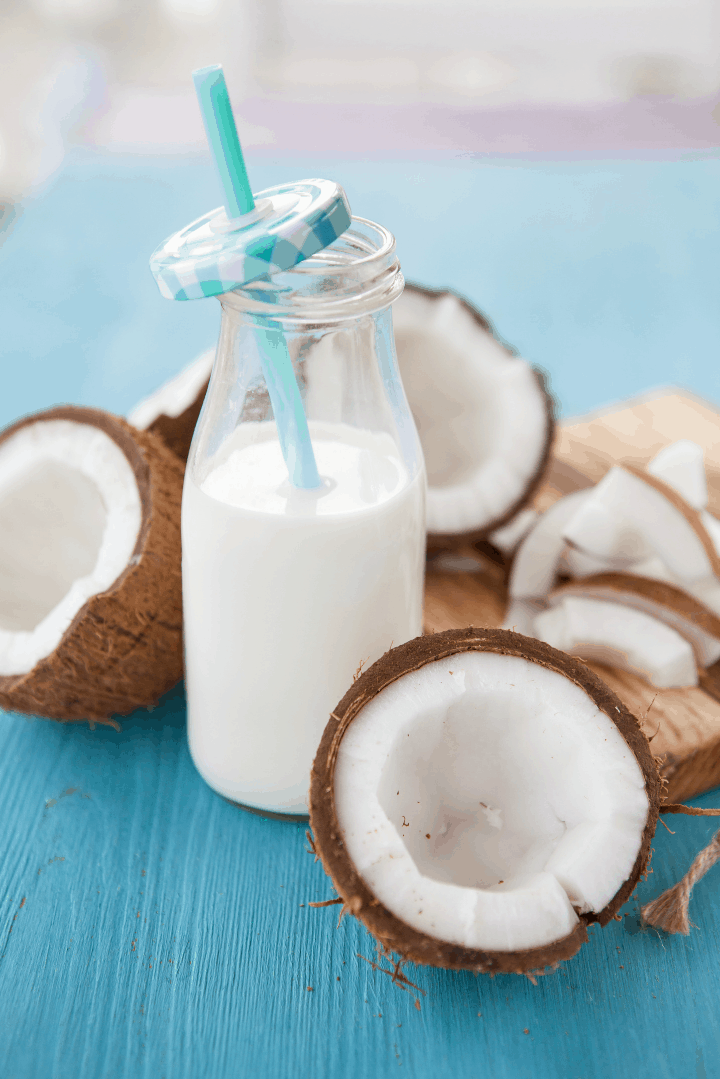
Can I Substitute Coconut Water For Coconut Milk?
Let me take out the guesswork and tell you it's a hard NO. I've learned that the hard way so you don't have to.
Just because they both contain the word "coconut" does not mean they serve the same purpose and have completely different recipes. Keep in mind that coconut water will only add a very light coconut flavor without the creamy consistency of coconut milk.
But if somehow you come into a situation where you only have coconut water but need coconut milk, you can replace a cup of coconut milk with one cup of coconut water plus heavy cream to add to the texture.
PROS AND CONS OF COCONUT WATER
Some people will drink coconut water as a sports drink when looking for hydration with a bit of flavor.
Pros
- Good source of vitamins and nutrients
- Contains antioxidant properties
- Great source of potassium and magnesium
- Blood pressure benefits
- Reduces heart disease risk
Cons
- It ups your calories
- It isn't good for people with allergies
- Contains diuretic properties (which basically means you'll be visiting the restroom a lot!)
- May cause electrolyte imbalance if you drink too much too often
- Increases blood sugar
- May lower your blood pressure

Final Thoughts
Both coconut water and coconut milk are healthy alternatives. There are many reasons to incorporate both into your lifestyle, especially if you're planning on going vegan. From yummy soups to other dairy-free dishes, coconut milk and water tick all the boxes.
If you want to replace your post-workout banana, try sipping some coconut water after your next exercise session. For an added bonus, why not mix in a scoop of cleanish Collagen Powder? It assists weight loss, promotes gut health and so much more.
I think that both coconut products have a lot going for them. Now that you know the difference between the two, which one are you planning to get the next time you head to the grocery store?
Healthy Recipes Using Coconut Milk
- 5 Best Chia Pudding Recipes
- 14 Smoothie Freezer Packs
- Homemade Keto Whipped Cream
- How To Make A Mocha Latte At Home
- My Go-To Vanilla Latte Recipe

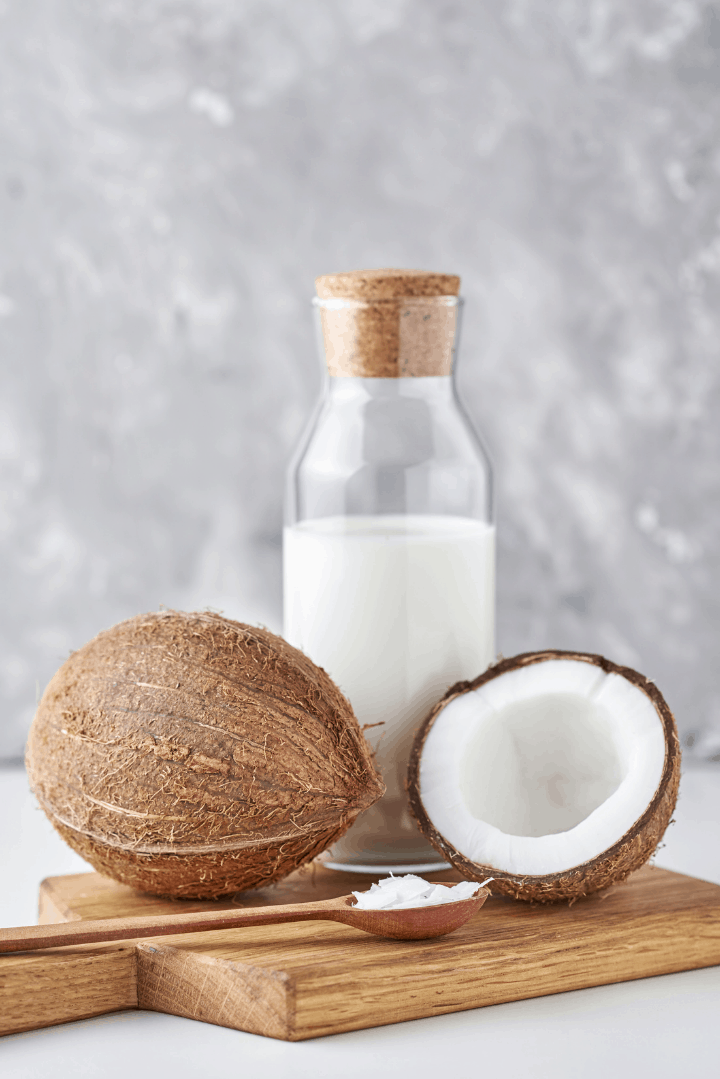
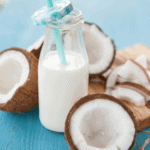
Comments
No Comments